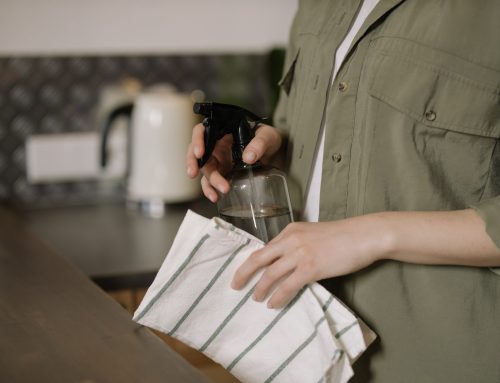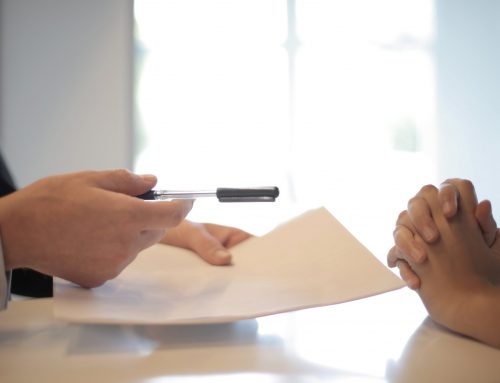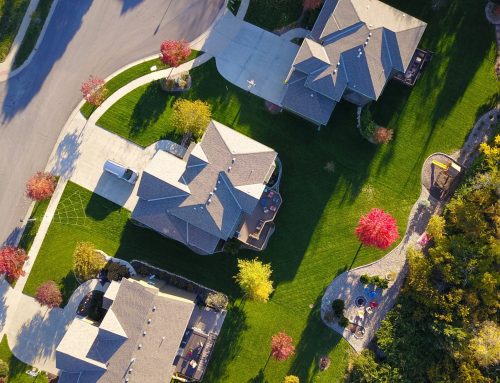You’ve bought a home, congratulations! Before you start looking for decor and planning a housewarming party, here are 14 things to do immediately after buying a house. These are imperative steps to take to ensure your safety and well-being in your new home so you can download our Move-In Checklist to help you stay organized.
Connect the Utilities
No one wants to move all day, unpack and not be able to shower! Once you know your close date, call the gas, water, and electric company to have the accounts switched to your name on the date of closing. That way there is a seamless transition and if the previous owners have any outstanding bills or debts those can be taken care of before moving in. Keep in mind there may be a trash and recycling bill to pay as well.
The Internet is a utility that is oftentimes overlooked until after move-in. If you know your close date then you can schedule a date for your internet or cable service to be hooked up. This way you’re not spending a week without internet.
Buy Insurance
You most likely set up insurance while processing your mortgage paperwork. If you didn’t, do so immediately. It is also important to note that your address can affect your car insurance as well and you could be leaving money on the table by not bundling them. Flood and earthquake insurance may also want to be something you consider purchasing.
Purchase or Review Your Home Warranty
It’s common for homebuyers to receive a home warranty while closing. Oftentimes, this is purchased by the seller. A home warranty covers all major appliances like a refrigerator or even an HVAC unit. If you don’t have one, it’s wise to consider purchasing one. They are fairly inexpensive and can save you thousands of dollars!
Change Your Locks
For your safety, it is very important to change your locks. You have no idea how many people have copies of those keys.
Reset Your Garage and Any Security Codes
Since you changed your locks, it’s also important to reset your garage security code. You should be able to look up a tutorial online. You can always purchase and program a new one too.
If your home comes equipped with built-in security, like a ring doorbell, you will also want to get that information changed.
Do a Deep Clean
Chances are the previous homeowners didn’t do a thorough cleaning job before they left. Spend the first few days before moving in cleaning your new home.
Disinfect every surface, especially the kitchen and bathrooms. Some people will even swap out old toilet seats for new ones. Don’t forget to check gutters, flowerbeds, dryer vents, fireplaces, and carpets. You may want to hire a professional for some of these items.
Know Your Home
Take some time to learn where your water shut-off valve, gas shut-off valve, HVAC, and circuit breaker are all located. Label the circuit breaker switches if they aren’t already. These are all good things to know in case of an emergency.
Check Smoke and Carbon Monoxide Detectors
It’s wise to test your smoke and carbon monoxide detectors and replace batteries. If you don’t have a carbon monoxide detector, buy a couple and place them throughout the home. They are inexpensive and save lives.
Forward Your Mail
Visit USPS and have them forward mail from your old address to your new one. You can fill out the form online for ease. Mail forwarding typically only lasts a year so it’s important to take this next step.
Change Your Address
You’ll have to notify a lot of different places once you get a new address. Here is a list of places to notify to get you started:
- DMV (Update your Driver’s License)
- The IRS (Fill out form 8822)
- Voter Registration
- Your Bank
- Creditors
- Investment and Retirement Accounts
- Insurance Companies
- Your Employer
- Doctor’s Offices
- Subscriptions
Buy a Safe
If you don’t have one already, buy a safe! A small fireproof safe should work perfectly. You’ll want it after closing on the house because you’ll receive closing documents, title documents, inspection reports, and more that you will want to keep safe.
Purchase Emergency Supplies
Preparing for an emergency may seem like a hassle but it’s always good to be safe rather than sorry. If you are unfamiliar with your new area look up what natural disasters could occur and plan accordingly. It’s always good to have a first aid kit, extra water, batteries, a power bank for your phone, flashlights, and an emergency radio.
Go Over Your Inspection Report
You most likely went over your inspection report before closing, but this can also provide a great checklist of maintenance items to fix as soon as possible. Note any items to fix, and make a plan to tackle them.
Create a Cleaning/Maintenance Schedule
A house requires regular maintenance. Things like cleaning air filters, gutters, and pest inspections can easily get missed. Plan out when you want to clean these items and stick to it!
Changing your HVAC filter is fairly easy and should be done right away and continually changed every 3 months.
Overall, taking these steps immediately after buying a house will ensure your safety and eliminate issues and stress in the future. Now, go plan that housewarming party!
Featured Image
Photo by Ketut Subiyanto from Pexels






